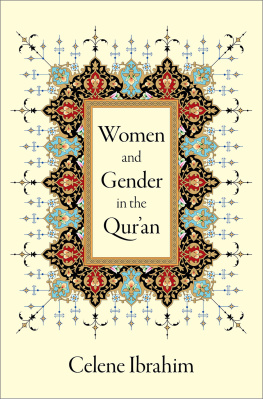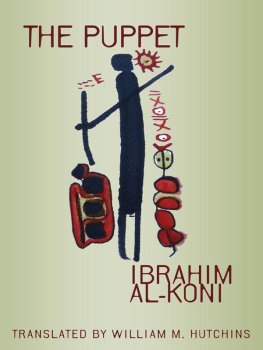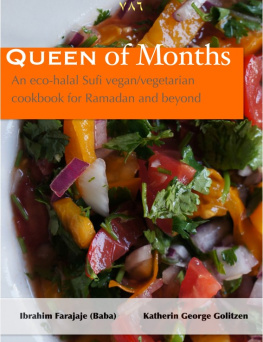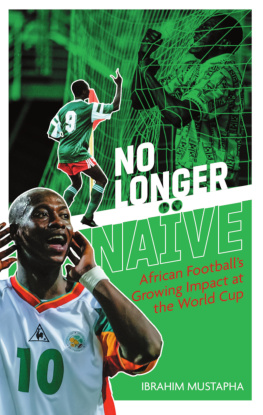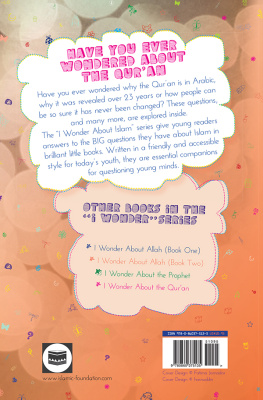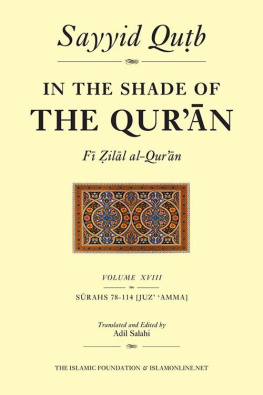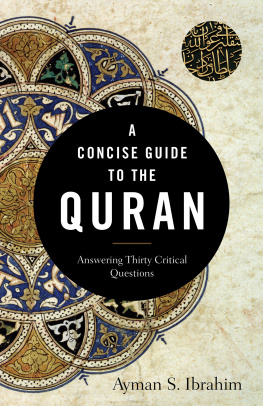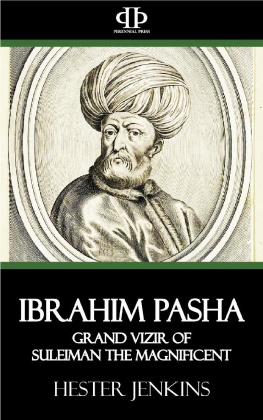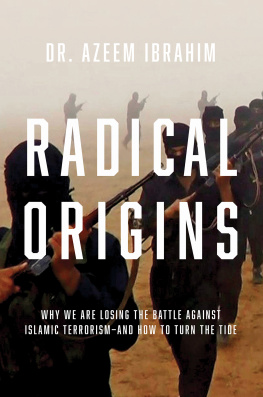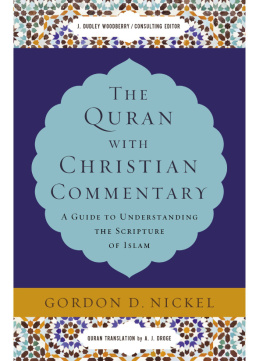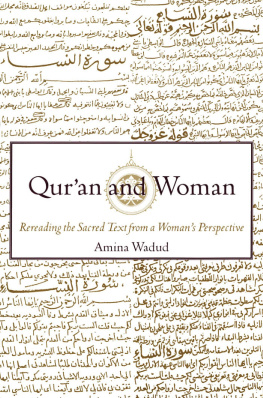Ibrahim Celene - Women and Gender in the Quran
Here you can read online Ibrahim Celene - Women and Gender in the Quran full text of the book (entire story) in english for free. Download pdf and epub, get meaning, cover and reviews about this ebook. year: 2020, publisher: Oxford University Press USA - OSO, genre: Home and family. Description of the work, (preface) as well as reviews are available. Best literature library LitArk.com created for fans of good reading and offers a wide selection of genres:
Romance novel
Science fiction
Adventure
Detective
Science
History
Home and family
Prose
Art
Politics
Computer
Non-fiction
Religion
Business
Children
Humor
Choose a favorite category and find really read worthwhile books. Enjoy immersion in the world of imagination, feel the emotions of the characters or learn something new for yourself, make an fascinating discovery.
- Book:Women and Gender in the Quran
- Author:
- Publisher:Oxford University Press USA - OSO
- Genre:
- Year:2020
- Rating:5 / 5
- Favourites:Add to favourites
- Your mark:
- 100
- 1
- 2
- 3
- 4
- 5
Women and Gender in the Quran: summary, description and annotation
We offer to read an annotation, description, summary or preface (depends on what the author of the book "Women and Gender in the Quran" wrote himself). If you haven't found the necessary information about the book — write in the comments, we will try to find it.
Women and Gender in the Quran — read online for free the complete book (whole text) full work
Below is the text of the book, divided by pages. System saving the place of the last page read, allows you to conveniently read the book "Women and Gender in the Quran" online for free, without having to search again every time where you left off. Put a bookmark, and you can go to the page where you finished reading at any time.
Font size:
Interval:
Bookmark:


Oxford University Press is a department of the University of Oxford. It furthers the Universitys objective of excellence in research, scholarship, and education by publishing worldwide. Oxford is a registered trade mark of Oxford University Press in the UK and certain other countries.
Published in the United States of America by Oxford University Press
198 Madison Avenue, New York, NY 10016, United States of America.
Oxford University Press 2020
All rights reserved. No part of this publication may be reproduced, stored in a retrieval system, or transmitted, in any form or by any means, without the prior permission in writing of Oxford University Press, or as expressly permitted by law, by license, or under terms agreed with the appropriate reproduction rights organization. Inquiries concerning reproduction outside the scope of the above should be sent to the Rights Department, Oxford University Press, at the address above.
You must not circulate this work in any other form and you must impose this same condition on any acquirer.
Library of Congress Cataloging-in-Publication Data
Names: Ibrahim, Celene, author.
Title: Women and gender in the Quran / Celene Ibrahim.
Description: New York : Oxford University Press, 2020. |
Includes bibliographical references and index.
Identifiers: LCCN 2020010449 (print) | LCCN 2020010450 (ebook) |
ISBN 9780190063818 (hardback) | ISBN 9780190063832 (epub) |
ISBN 9780190063825 (updf) | ISBN 9780190063849 (digital online)
Subjects: LCSH: Women in the Quran. | QuranCriticism, interpretation, etc. | Women in Islam.
Classification: LCC BP134.W6 I27 2020 (print) |
LCC BP134.W6 (ebook) | DDC 297.1/2283054dc23
LC record available at https://lccn.loc.gov/2020010449
LC ebook record available at https://lccn.loc.gov/2020010450
To my daughter, Rahma Ibrahim, with admiration for her delightful audacity, wit, and fierce willpower.
The Quran is a source of moral and ethical guidance for more than a billion people in the contemporary world; it is esteemed by many as the unadulterated Word of God. Exegesis of the Quran, especially with regard to themes as primal and contentious as sex and gender, can sway opinions, influence subcultures, and inspire minds. In this book, I analyze Quranic depictions of womens political agency, public voice, and other such themes, with sensitivity to the importance of these topics in devotional contexts. The work contributes to the dynamic field of Quranic studiesin both its secular and confessional modalities.
In a recent work, Aysha Hidayatullah argues that sexual difference, as depicted in the Quran, is based not on fixed binaries but rather on constructive, interdependent relationality wherein difference does not derive from ones self-generated uniqueness but rather from a dynamic and relative contrast with the other. Does the Quran, we might ask, depict women and girls as less interesting or inferior permutations of a normative masculine ideal? How does the Quran depict embodied women in the context of its stories and parables? What is the extent of female agency, faith, wisdom, knowledge, and proximity to God? Do Quranic depictions of womens faith, wisdom, and knowledge differ in any substantial way from qualities with which men are endowed?
Before we engage much further in debates about sex, sexuality, and gender in the Quran, a few preliminary observations will allow me to better situate this work. Indisputably, exegesis by women scholars has lagged in Islamic intellectual history, a trend that is also reflected in other domains of knowledge production. Asma Sayeed, for one, traces in detail the fluctuating
Likewise, in her study of gender in early exegetical works, Aisha Geissinger notes the social contexts that resulted in a dearth of womens authorial ingenuity; a work by Nn Asmu (d. 1280/1864), the daughter of Shehu Usmn dan Fodio of the West African Sokoto caliphate, is, according to Geissinger, the only example of a text pertaining to the Quran written by a woman prior to the late nineteenth century ce.
Similarly, Ahmed El Shamsy summarizes the social contexts in which premodern orthodoxy took shape and the factors that resulted in the conspicuous absence of women scholars at the upper echelons of most fields of Islamic knowledge:
Given that the process of transmitting knowledge was based on an intimate relationship between student and teacher, the socially prescribed distance between the sexes severely curtailed womens opportunities to become apprentices to famous scholars. In effect, such apprenticeships were possible only in the rare instances when the senior scholar was female or the students close relative. This is not to deny that women attended the public lectures of jurists, traditionists,
In so acknowledging that women scholars played a relatively marginal role, historically speaking, in the development of Quranic exegesis, we might ask: Are the factors that led to a relative dearth of womens voices among the ranks of influential authors and exegetes in any way rooted in, or explained by, Quranic depictions of womens spiritual or intellectual aptitude? If the answer is a resounding nothat rather, the relative marginalization of women scholars is attributable to social factors, and is not intrinsically related to womens capacity for insightthen we might elicit works of exegesis from women scholars. Hence, in this book I am something akin to a female exegete (mufassira), and I engage the work of my colleagues who are also leveraging means of production and networks made possible by the secular academy. At the same time, I do not engage directly with the Qurans claim of providential origin so as to ensure that this work is accessible to audiences of varying theological commitments; I intentionally avoid the issue of authorship by using phrases such as the Quran says... or the Quran contains....
Why are insights from another mufassira-type warranted? Fatima Seedat summarizes the potential for womens scholarship on the Quran not only to ameliorate a historic lacuna but also to provide perspective: the recognition of women scholars of tafsir [Quranic exegesis] is more than a simple historical correction to their absence but a necessary realignment of the trajectory between the Creator, the text, and the addressee that identifies women as learned scholars and readers of the text.
Such an open acknowledgment of the need for reappraisal and for an expansion does not delegitimize or derail the entire exegetical edifice and heritage, as those situated within this episteme may fear. Rather, to abandon deconstructive critique in a contemporary political climate exacerbated by bombastic neo-colonial rhetoric and flagrant anti-Muslim bias is to risk surrendering the enterprise of Islamic knowledge production to those with potentially less benevolent objectives. Constructive critique, then, is necessary for the continued salience and vibrancy of the intellectual tradition for new generations of Muslims.
Structural barriers and challenges to the full participation of women exegetes and minoritized persons remain; at the same time, one can hope for a continuing expansion of the boundaries of Quranic studies in the academy. In particular, I hope that this book encourages more believing women with academic rigor to pursue Quranic scholarship so as to keep alive the heritage of our foremothers who helped found and sustain a scholarly tradition. Their legacies reassure me that new generations of exegetes willdespite the headwindscontinue striving to influence and inspire, to acquire knowledge, and to do this,
Font size:
Interval:
Bookmark:
Similar books «Women and Gender in the Quran»
Look at similar books to Women and Gender in the Quran. We have selected literature similar in name and meaning in the hope of providing readers with more options to find new, interesting, not yet read works.
Discussion, reviews of the book Women and Gender in the Quran and just readers' own opinions. Leave your comments, write what you think about the work, its meaning or the main characters. Specify what exactly you liked and what you didn't like, and why you think so.

